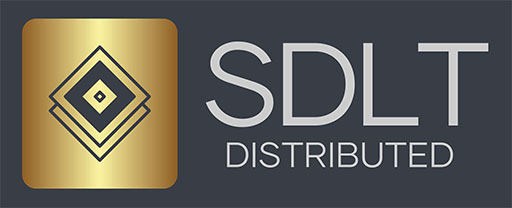
Blockchain-Driven Disruption in Private Markets: LSE’s DMI and the Future of Tokenized Fundraising
The private capital markets are undergoing a seismic shift. For decades, these markets operated in a world of opaque processes, delayed settlements, and high friction. But with the advent of blockchain technology and tokenization, the rules of the game are rewriting themselves. At the forefront of this revolution is the London Stock Exchange Group (LSEG), whose Digital Markets Infrastructure (DMI) platform is redefining how private funds are issued, traded, and managed. This is not just a technological upgrade—it’s a paradigm shift in capital formation, liquidity, and systemic efficiency.
DMI: A Blockchain-Powered Infrastructure for the Digital Age
LSEG’s DMI platform, launched in September 2025, is the first global exchange group to operationalize private funds on blockchain at scaleLondon Stock Exchange Debuts Blockchain Platform for Private Markets[1]. Built on
Azure, DMI leverages distributed ledger technology (DLT) to streamline the entire asset lifecycle—from issuance and tokenization to settlement and servicing. The platform’s open architecture integrates with LSEG’s Workspace, a financial data and analytics tool, enabling investors to access private fund opportunities within a familiar environmentLSEG launches Digital Markets Infrastructure platform[2].
The inaugural transaction on DMI was executed by MembersCap’s MCM Fund 1, marking a milestone in blockchain-driven capital raisingLondon Stock Exchange Unveils Blockchain-Based Platform for Private Funds[3]. Early adopters like EJF Capital and Archax are already leveraging the platform to tokenize assets, reduce settlement times from days to seconds, and cut operational costs by up to 40%LSEG Unveils Blockchain-based Platform – DMI, for Private Funds[4]. By design, DMI bridges the gap between traditional finance and digital infrastructure, offering 24/7 settlement, programmable smart contracts, and real-time transparency—features that have long been absent in private marketsLSEG rolls out digital markets infra platform for private funds[5].
Strategic Investment in Tokenized Infrastructure: A $5 Trillion Opportunity
The rise of tokenization is not a speculative trend but a strategic imperative for institutional investors. According to a report by Fireblocks, tokenized assets are projected to reach $5 trillion in value by 2030Tokenization and the FMI Opportunity: Powering Secure, Efficient…[6]. This growth is driven by the inherent advantages of blockchain: fractional ownership, cross-border accessibility, and programmable liquidity. For example, BlackRock’s BUIDL tokenized money market fund and Franklin Templeton’s blockchain-based government money fund demonstrate how traditional fund structures are being reimagined for the digital ageBlockchain technology and the transformation of…[7].
Tokenized fundraising also unlocks new efficiencies. Unlike traditional private markets, where liquidity constraints and intermediaries delay transactions, blockchain enables real-time trading and settlement. In fixed income and real estate, tokenized bonds and properties allow broader participation and instant value transferBlockchain technology and the transformation of…[8]. Furthermore, DLT streamlines collateral management through mechanisms like delivery versus delivery (DvD) and smart contracts, reducing counterparty riskBlockchain technology and the transformation of…[9].
DMI vs. Traditional Systems: A Comparative Edge
Compared to legacy systems, DMI offers a compelling value proposition. Traditional private market transactions often take days to settle, involve multiple intermediaries, and lack transparency. In contrast, DMI’s blockchain-based infrastructure reduces settlement times to seconds, minimizes counterparty risk, and provides real-time visibility into fund performanceLondon Stock Exchange Completes First Blockchain-Powered Transaction[10]. For asset managers, this means faster capital deployment and reduced operational overhead. For investors, it means access to previously illiquid assets with the same ease as public markets.
The platform’s interoperability with Microsoft Azure also ensures scalability and security, critical for handling large volumes of transactionsLSEG launches Digital Markets Infrastructure platform[11]. This strategic collaboration—underscored by Microsoft’s 4% stake in LSEG—highlights the platform’s potential to become a global standard for
infrastructureLondon Stock Exchange Debuts Blockchain Platform for Private Markets[12].
The Road Ahead: Expanding Beyond Private Funds
DMI is just the beginning. LSEG has already initiated pilot transactions for other asset classes, including real estate and infrastructureLondon Stock Exchange Completes First Blockchain-Powered Transaction[13]. As tokenization matures, we can expect a broader convergence of traditional finance and blockchain-based systems. Major institutions like
,
, and
are already developing their own tokenization platforms, signaling a systemic shiftMainstreaming Of Blockchain: Digital Innovations…[14].
For investors, the implications are clear: strategic allocation to blockchain-driven infrastructure is no longer optional—it’s a necessity. Platforms like DMI are not just modernizing capital markets; they’re redefining how value is created, transferred, and stored in the digital economy.
Conclusion
The London Stock Exchange’s DMI platform is a harbinger of a new era in private markets. By harnessing blockchain’s capabilities, LSEG is not only addressing the inefficiencies of traditional systems but also unlocking unprecedented liquidity and transparency. For strategic investors, the message is unequivocal: the future of capital formation lies in tokenized infrastructure. Those who fail to adapt risk being left behind in a rapidly evolving financial landscape.
